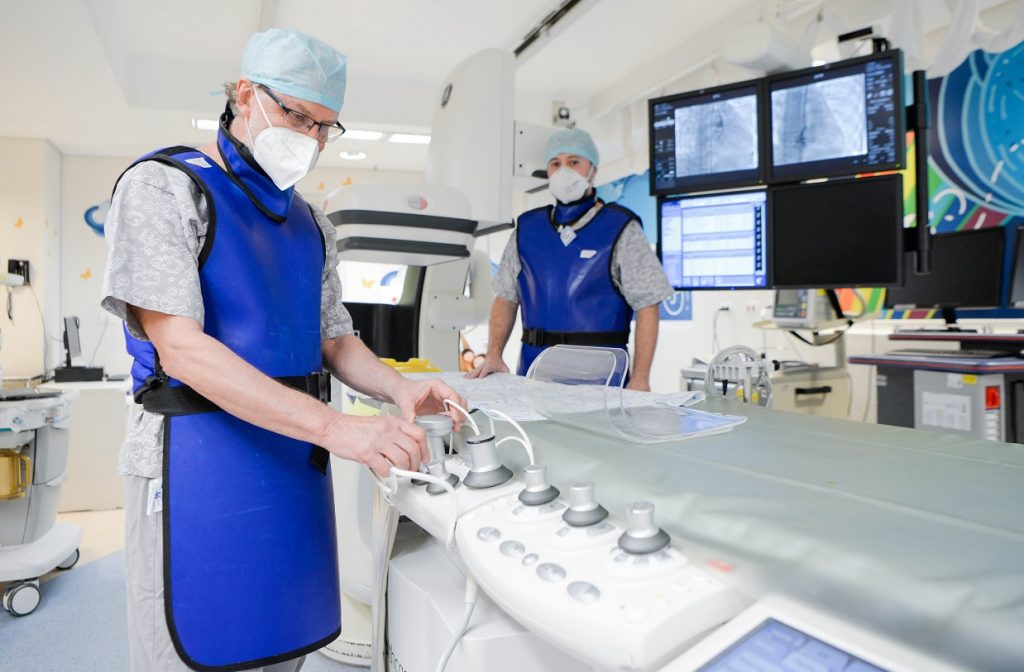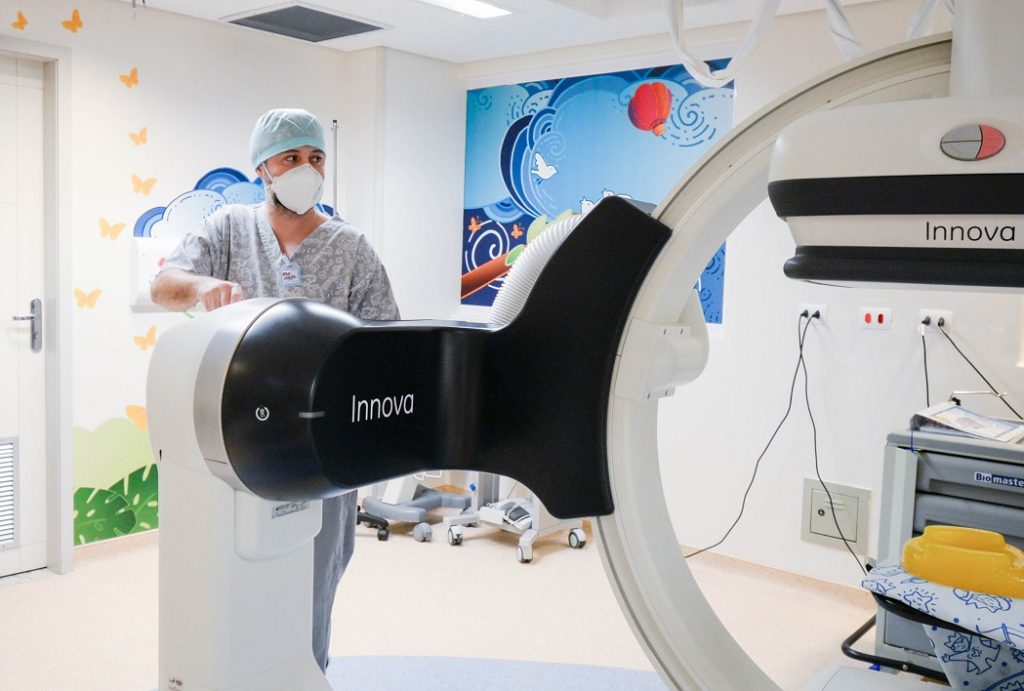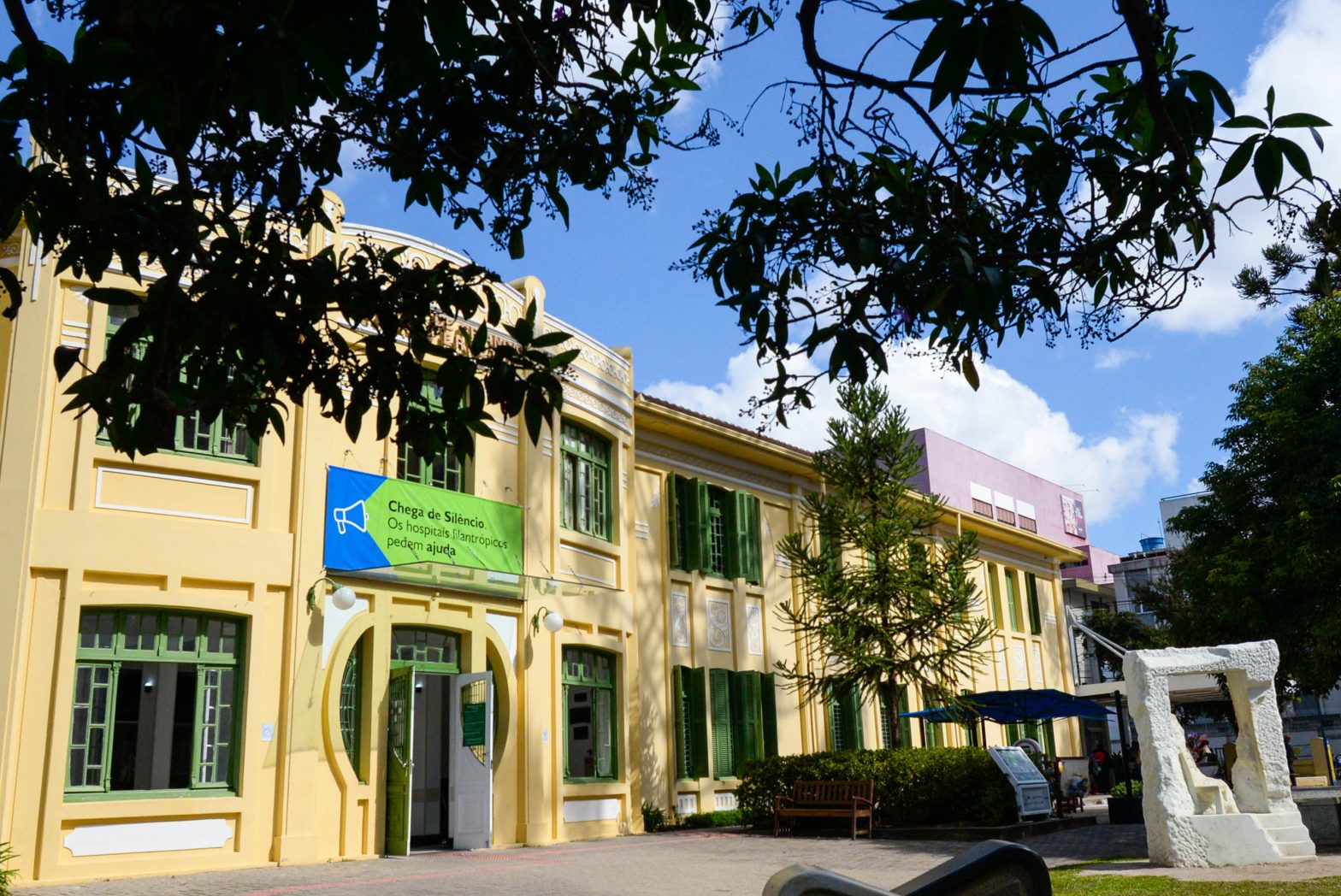The Research Institute contributes to WHO Project
The study, supported by Pequeno Príncipe Gala, aims to establish reference levels of radiation during exams, to be adopted in Latin America and Caribbean hospitals

The Pelé Pequeno Príncipe Research Institute, through the team led by scientist and medical doctor Hugo Reuters Schelin, was invited to join the project “Optimization of Pediatric Interventional Radiological Protection in Latin America and the Caribbean (OPRIPALC, abbreviation in Portuguese)”, coordinated jointly by the Pan American Health Organization (PAHO) and the World Health Organization (WHO), in cooperation with the International Atomic Energy Agency (IAEA).
The main purpose of the project is to establish reference levels of radiation diagnosis during the performance of invasive cardiological procedures in children, such as catheterizations. The Pequeno Príncipe performs a large number of these exams per year. In 2021 alone, there were about 300. “Because it is a exclusively pediatric hospital, Pequeno Príncipe has a great deal of experience in this type of procedure, unlike many other hospitals that also assist adults. Due to this characteristic, we have a lot to contribute to this initiative. We are a reference,” explains the scientist.
The need to establish reference levels for radiation during pediatric examinations is justified by the fact that children have different radiosensitivity in their organs when compared to adults. “The child’s body is in development, and those children still have a long time to live. So, avoiding the risk of developing cancer as a consequence of the high doses of radiation he receives is imperative,” states Schelin. Another purpose of the project is to promote the safety of professionals who perform such procedures.

Pequeno Príncipe Hospital has a large structure of imaging exams that use radiation, so it is always developing actions that seek to protect children and professionals. Therefore, the Hospital has a medical physicist who is exclusively dedicated to the care of this equipment, to guarantee the best quality of the exams with the lowest possible radiation dose.
The Research Institute team has been developing studies aimed at optimizing radiation doses since 2010. The specific project that investigates radiation during cardiological examinations began in 2019. “This research has the participation of graduate students carried out in partnership between the Research Institute and the Pequeno Príncipe College, and directly benefits the children and adolescents treated at the Hospital”, he adds.
The intent, upon completion of the project, is that a regional consensus document that provides guidance to improve safety and security optimization for pediatric intervention practices in Latin America and the Caribbean is produced.
More
Pequeno Príncipe assisted in more than 600 cases of violence in 2021
The institution upholds a campaign that seeks to contribute to early identification of cases and the end of violence against children and adolescents
Campaign sheds light on the underfunding and Brazilian crisis of charitable hospitals
Deficit in healthcare reached US$ 10.4 million at the Pequeno Príncipe in 2021, regardless of the fundraising; cancellation of appointments and surgeries because of the COVID-19 and lack of readjustment on the services’ payments are some of the reasons









